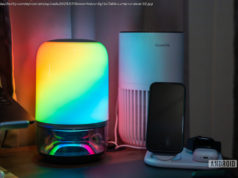Palo Alto city officials have discussed the cameras as a way to phase out the need for Track Watch, a program in which the city stations private security guards along the rail corridor where there…
In a year, cameras likely will replace humans in the effort to prevent suicides on Caltrain tracks in Palo Alto.
The City Council on June 19 approved a $1.4 million contract with G4S Secure Integration LLC to design and construct the video management surveillance system. The work is expected to take about six months.
The cost for G4S to maintain and monitor the remote camera system, and for fiber subscription and power expenses, could total $325,000 a year.
City officials have discussed the cameras as a way to phase out the need for Track Watch, a program in which the city stations private security guards along the rail corridor section where multiple teen suicides happened between 2009 and 2015.
Acting Police Chief Ron Watson told city leaders during a Finance Meeting in May that no system is foolproof, but cameras have at least one distinct advantage over human guards: night vision.
“It is so dark out there that 50 or 100 feet away, they can’ t see anything, whereas with the technology, there will be some advantages on greater distances, ” Watson said. “We have four miles of rail that runs through town.… Their coverage is very limited just by the environment.”
Cypress Security provides guards at an annual cost of about $1.7 million; its contract ends June 30,2018 unless renewed by the council.
At the June 19 meeting, City Manager James Keene said city officials anticipate not having Track Watch guards beyond 2018 but are carefully planning the transition to cameras.
Keene reminded officials that the private guards do not intervene when someone is spotted on the tracks. Their role is simply to call police, which is what someone monitoring the camera system would do, Keene said.
“What (the guards) do provide is, from a distance, a visible sign that there is somebody there and that’s one of the issues that we want to sort of acclimatize ourselves to, ” Keene said.
The city has tested a camera system at the East Meadow crossing, which covered an area of 1,000 feet in both north and south directions and potentially distinguished between humans and other objects. Unsafe conditions on the tracks triggered alarms.
“The ability of a human to maintain focus and concentration in the comfort of a monitoring center compared to the fatigue and stress of standing in the elements in the dark of night is one reason why rail systems utilize (intrusion detection systems) , ” city staff said in a report.
Guards have been posted at the crossings around Alma Avenue, Charleston Road, Meadow Drive, Churchill Avenue and the California Avenue train platform.






